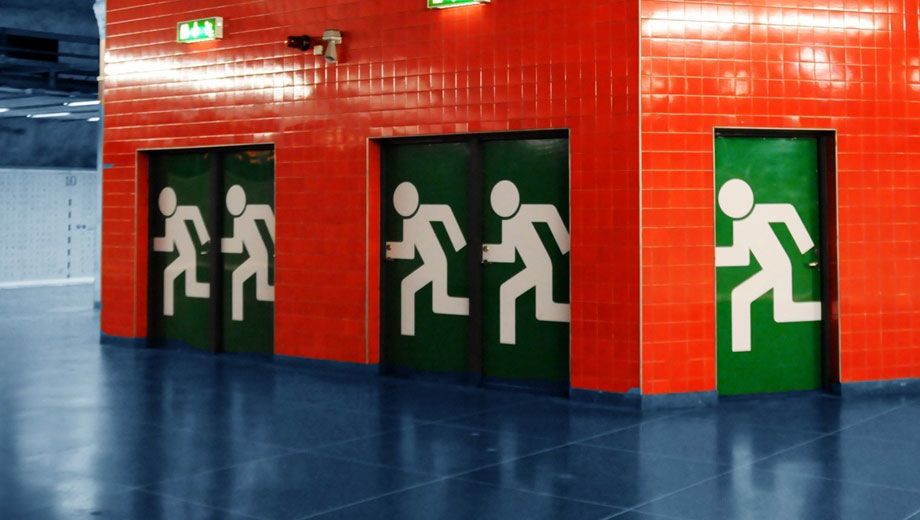We've put together five useful and practical tips to help you stay safe when you're travelling. They'll help you prepare in case there's an emergency or disaster while you're on the road -- and they're useful to let people back home know you're safe.
Enter Australian numbers in your mobile in +61 format
If you're caught up in an emergency, you'll want to phone home to say you're all right. So save important numbers in the mobile phone you're using abroad so you don't have to look them up.
But make sure any home telephone number you're likely to call in an emergency from abroad has the international dialling prefix on it.
Rather than saving your home number in Melbourne as 03 1234 5678, save it as +61 3 1234 5678.
If you call the number using your phone while you're abroad without the +61 prefix, you'll be calling whatever the local 03 number is -- not the one in Australia.
You may also need to know how to turn on global roaming on your Australian mobile phone so you can use it abroad if something happens. Even if you'd normally avoid the high costs of roaming, it can be a lifesaver if you need to make emergency calls.
Choose a non-family member for your emergency contact
Your immediate family is likely to be incredibly stressed if you're travelling overseas when a disaster strikes, making it less likely that they will be thinking clearly if you need them to do something like book a flight or find out information.
Designate an emergency contact who is a level-headed friend and ideally a frequent traveller who knows how travel works, and who can be relied upon in a crisis.
Close colleagues -- not people you're travelling with, of course -- are an excellent choice, as are executive assistant or travel agent friends.
Keep this person's telephone number in your phone under a contact marked EMERGENCY, and make sure that they have details of family members to pass on the fact that you're safe.
Make (and keep) a copy of your passport and credit cards
Keep a copy of your personal info (passport, credit card numbers, etc) on you, your phone, your PDA and in work bag at all times when travelling.
Before everyone had a smartphone, many travellers photocopied this information, laying everything out on the glass of the copier.
A better idea these days is to lay them out on the desk and take a picture with your camera (smartphone or regular digital camera), print out a copy and store the image securely on your smartphone and laptop. (Keeping it unencrypted in email is a bad idea, though: it opens you up to credit card fraud.)
In the event that you need to get out of a disaster area quickly, your family or emergency contact can book flights on your behalf with this information -- you'll just need to tell them the three or four digit security number printed on the card. (American Express has a four digit number printed on the front of the card, while all other cards have three digits on the back.)
This tip, too, isn't just for disasters -- it's also handy if you lose your wallet while on the road.
However, a word of warning: check the terms and conditions for your cards before keeping any copies. Your bank or card issuer's fraud protection policies may state that keeping copies of the credit card numbers voids your protection, leaving you liable in the event that the card is used fraudulently.
Change the contact details page of your passport every time you travel
Every passport has a page where you can affix emergency contact details, and you should update this every time you travel.
Include your name, a contact number for where you're staying, and your emergency contact person back home -- with +61 dialling codes.
Duplicate these details in the local language(s) as well, even if you have to print off a computer-generated translation from somewhere like Google Translate.
Designate a contact back home for emergency check-ins
If you're travelling with colleagues, arrange that, in an emergency, everyone will check in with a specific person back at home base if something goes wrong.
Make sure that person at home base has an emergency personal contact for each person travelling, so that families and friends can be reassured about their safety in an incident.
This advice isn't just for major disasters -- it's also useful if your group gets separated, or is in a minor car accident or something similar.
Business travellers in large companies may have a designated executive assistant or PA who can fulfil this role. Alternatively, check whether your corporate security team could be your contact.
If you work for yourself or in a smaller company, consider a business partner or even a relation. Retired Aunt Mildred in Daylesford who used to be a secretary might be a surprisingly good choice here if she's frequently up until all hours and has everybody's numbers by the phone.

Hi Guest, join in the discussion on Top emergency preparedness tips for travellers